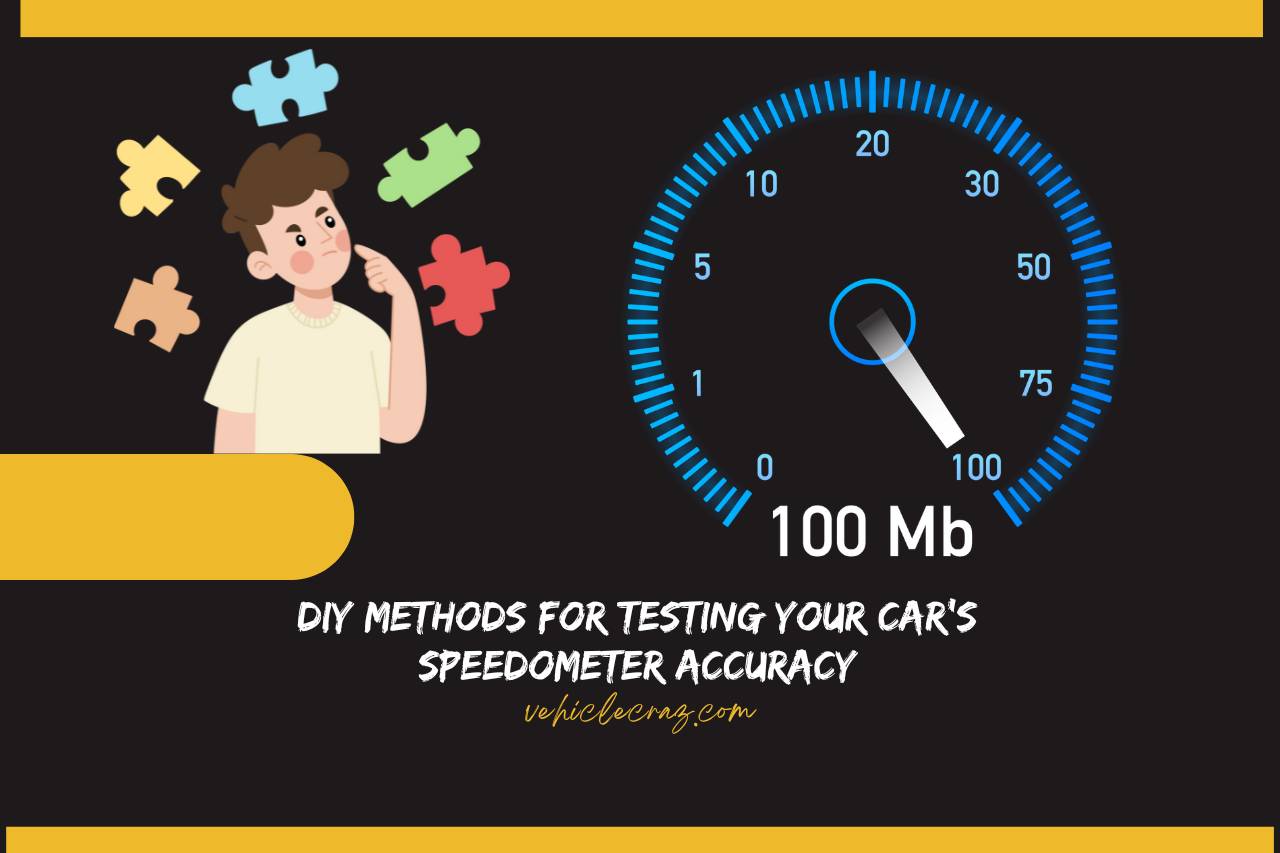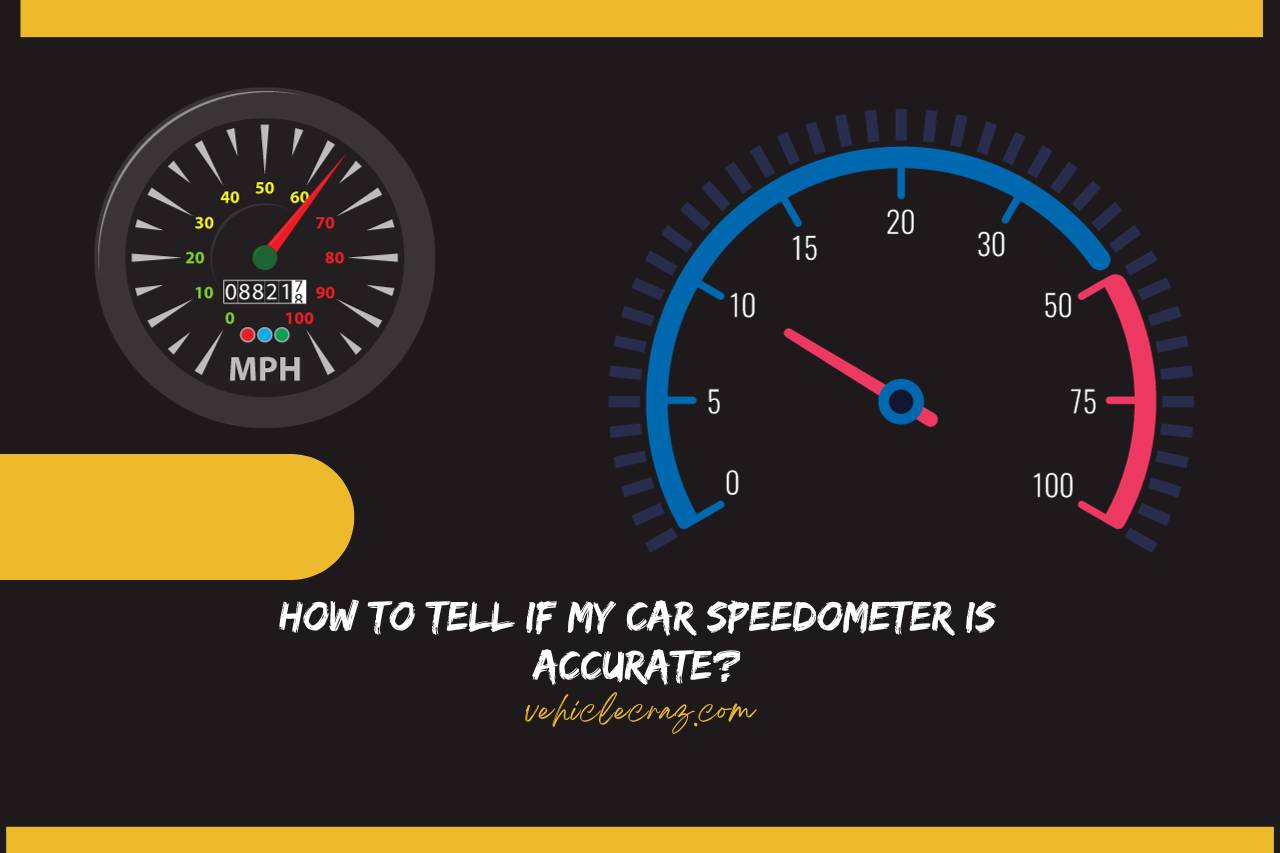How to Tell If My Car Speedometer is Accurate? Tips to Test!
To determine the accuracy of your car’s speedometer, start by comparing it to a GPS device, as they provide accurate speed readings. While driving at a consistent speed, note any discrepancies between your car’s speedometer and the GPS reading.
Additionally, some mobile apps offer real-time speed tracking. Another method is to use speed limit signs on the road. Choose a stretch with clear signage, match your speed to the limit, and check if your speedometer aligns.
If discrepancies persist, it may be worth consulting a professional for calibration. Regular checks help ensure your speedometer provides reliable information, contributing to safer and more accurate driving experiences.
What Causes Speedometer Inaccuracies?
The speedometer accuracy depends on several factors:
Tire Size and Wear
Changing tire sizes from the original specifications or significant tire wear can lead to inaccurate speedometer readings, as your speedometer calibration is based on the circumference of the factory-standard tires.
Vehicle Modifications
Any modifications that affect the wheel rotation or transmission can impact the speedometer accuracy.
Sensor and Instrument Cluster Issues
Faults in the VSS or the instrument cluster can lead to incorrect speed readings.
Age and Wear of Speedometer Mechanism
In older vehicles with mechanical speedometers, wear and tear over time can affect your accuracy.
How to Use GPS Technology to Verify Speedometer Accuracy?
To leverage GPS technology for verifying speedometer accuracy, initiate the process by driving at a consistent speed and simultaneously monitoring both your car’s speedometer reading and the speed displayed on your GPS device.
GPS systems provide highly accurate speed data, serving as a trustworthy benchmark for comparison. Pay close attention to any discrepancies between the two readings. If you consistently observe variations, it indicates potential inaccuracies in your vehicle’s speedometer calibration.
Periodically cross-referencing your speedometer with GPS readings not only ensures a more precise assessment but also contributes to safer driving practices by fostering an awareness of your actual speed in real-time.


Other Methods for Testing Speedometer Accuracy
Other than the GPS method, there are other methods as well to check the accuracy of the speedometer. Here are some of them.
Measured Mile Test
Find the measured mile or kilometer marker on the highway (often used by highway authorities for calibration). Reset the trip meter at the start of the marker and check the reading at the end. It should match the distance of the measured mile or kilometer.
Using a Dynamometer
If you have access to a dynamometer (commonly used in auto repair shops), you can test the speedometer while your car is stationary. The dynamometer simulates driving conditions and provides you with an accurate speed reading.
Speedometer Calibration Tools
Some automotive stores offer speedometer calibration tools for rent or purchase. These tools can be connected to your vehicle to test and adjust the speedometer.
Consultation with a Professional
If you’re uncertain about the results or if DIY methods indicate a significant discrepancy, it’s advisable to consult a professional mechanic for a thorough check and calibration.
Watch this one,
Video Credits – OVERDRIVE
You May Also Like
- Does Speedometer Measure Average Speed? Exploring Speedometer!
- Can you Add a Digital Speedometer to a Car? (Step-by-Step)
- How to Remove Scratches from Speedometer Lens? Practical How-To!
- Which Fuse Controls the Speedometer? Start with the Fuse Box!
- How to Calibrate a Speedometer? From Novice to Pro!
- Speedometer Not Working – Troubleshooting Your Car!
- Does ABS Sensor Affect Speedometer? Exploring the Connection!
- Why is My Speedometer Jumping? Solving the Mystery!
- Does Tire Size Affect Speedometer? Expert Insights!


I’m Alex, a seasoned mechanical teacher with over 20 years of hands-on experience in Australia. My passion for all things automotive has driven me to establish this blog, aiming to share my wealth of knowledge and expertise with fellow enthusiasts, DIYers, and anyone keen on understanding the mechanics behind the machines we rely on daily.






![Can you Add a Digital Speedometer to a Car? [New/Older Vehicles]](https://vehiclecraz.com/wp-content/uploads/2023/11/ElecdiaryPresspallettevehiclecraz-49-768x512.jpg)
